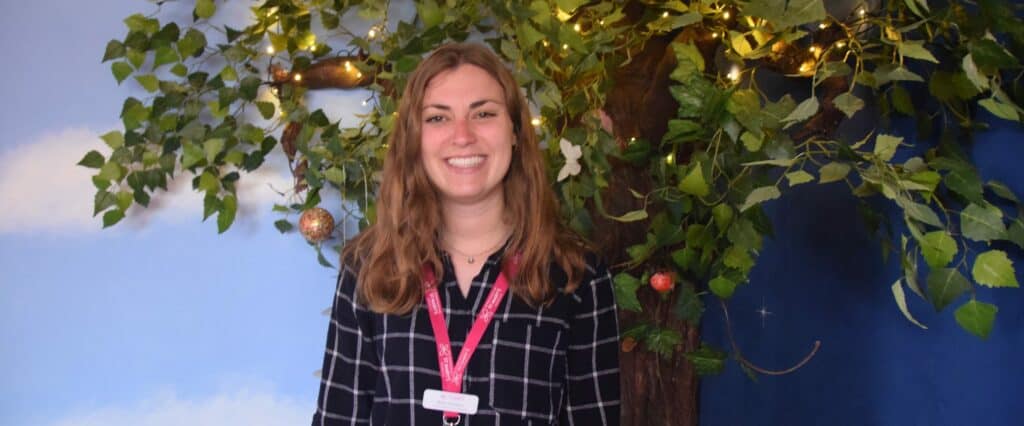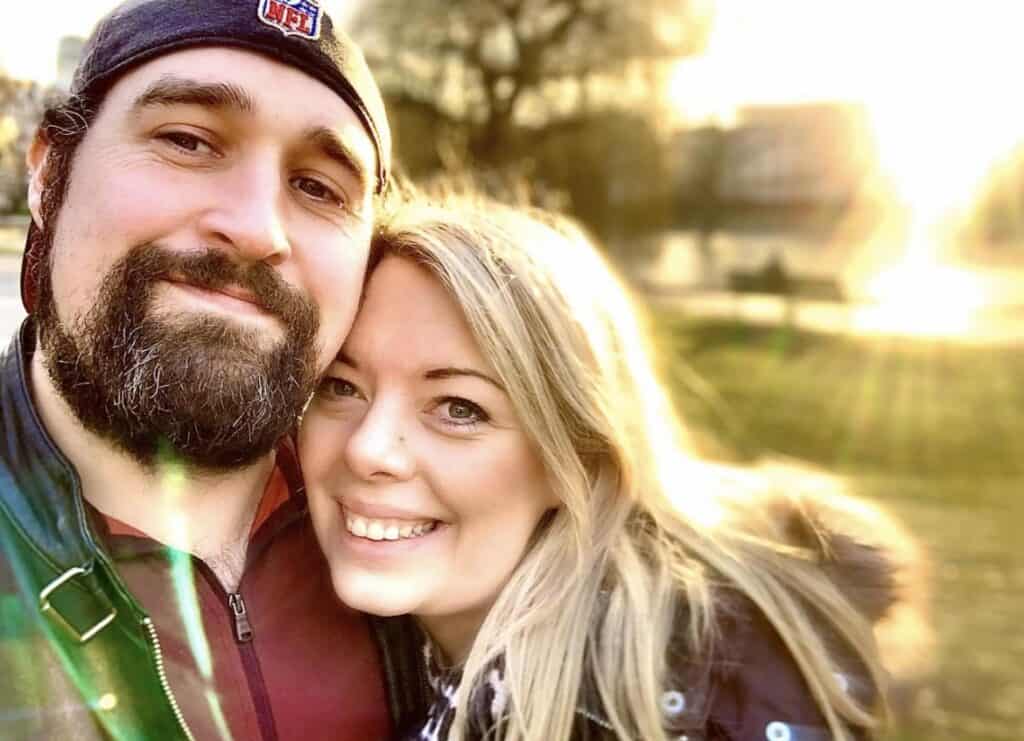For Children’s Grief Awareness Week, we caught up with Beth, a Children’s Counsellor at Birmingham St Mary’s Hospice. In her role, Beth supports children and young people whose loved one has been cared for by the Hospice – both during the person’s illness and after they have died.
Beth and the Children’s Service team use a variety of techniques to engage with young people as they go through the journey of bereavement, including activities such as painting, arts & crafts, and creating memory boxes. She also works with local schools to equip teachers to support grieving pupils more effectively. Here, she explains more about her role…
I work with children between the ages of 3 and 18 as they navigate the difficult emotions that come with bereavement. This will normally involve having one-to-one sessions where we can talk through thoughts, feelings and worries that they might be experiencing.
For many children, expressing such big feelings verbally can be challenging, so we use lots of different mediums that facilitate self-expression in other ways, such as art, play and writing. For example, we may write out affirmations and store them in a box so that if they ever feel worried or nervous, they can take one out as a reminder that they are safe and are on their way to finding steady ground.
With everything I do, my main goal is to teach young people the skills and coping mechanisms that will make things easier when they face difficulties in the future. Grief is not linear – it’s a journey full of ups and downs – so by teaching children the skills needed to cope with grief, we can help them become healthy adults.
As well as our one-to-one sessions, the team also run ‘Growing Together’ – a group session where children and young people can receive peer support. The group sessions are open to all children aged 4 and 18 across Birmingham and Sandwell – regardless of whether the person who died was or wasn’t supported by the Hospice. By bringing children together, we hope to help increase their confidence, reduce isolation and support them in managing their own and other’s difficult feelings. We want the groups to be a safe space where children can listen and learn from other people’s experiences, as well as voice any worries or questions they might have.
Alongside Growing Together, we also run a parent and carer group to support adults through managing their children’s grief. I think it’s vital to encourage open communication within families, to ensure that everyone understands each other’s needs and fears. Parents and carers are often experts in their children and so whilst it’s my job to give them the tools to support their child through grief, it’s ultimately them who will be implementing them.
As so many of us feel a sense of awkwardness and discomfort when talking about death, a lot of people tend to tiptoe around talking to bereaved children, including teachers. In order to help teachers feel more confident in this area, our team will be going into schools to offer advice on how to support students experiencing bereavement. There are lots of tricky situations that teachers struggle with, such as whether to explain what has happened to the class or keep it quiet so as not to upset the child. These complex situations often have a simple answer – ask the child what they would prefer. As adults, we can make the common mistake of forgetting that children have the right to have input into how they are cared for, and that supporting them relies on the ability to listen to them.
The biggest misconception I see regarding how to support a child who is bereaved is that talking about their grief or the person who has died will upset them, so it should be avoided. This couldn’t be further from the truth. The sadness that they feel is already there but by talking about it and having open conversations, you are showing them that they don’t have to hide how they feel and that they are not alone in their emotions.
Whilst many people may assume that my job is quite upsetting, I actually find a lot of joy in what I do. I feel incredibly privileged to do my role, especially as I am often present during monumental moments of the grieving process, such as the first time they talk about the person who has died. It can be a challenging role but it’s worthwhile, as I get to support really lovely families and make a real difference. During my time here, children have said the most insightful and hilarious things and I definitely learn as much from them as they learn from me.
Thank you Beth for sharing your story with us. If you would like to find out more about our Children’s Service, you can visit our website, email the team or give them a call on 0121 752 8753.



